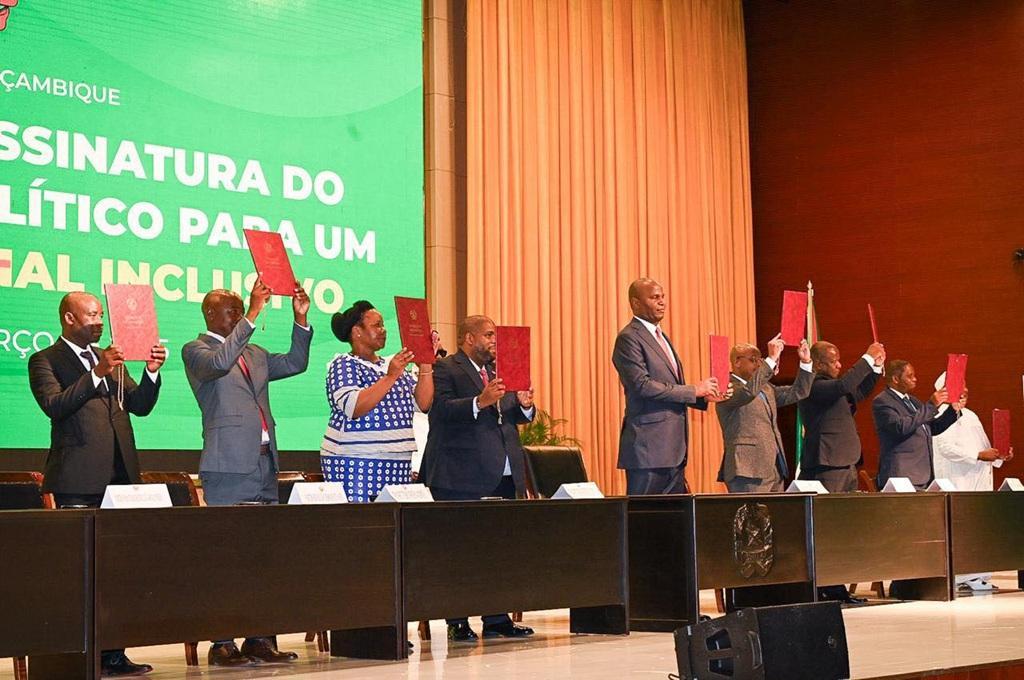Africa-Press – Mozambique. The electoral platform Decide argues that granting a “selective” pardon to those convicted in the context of post-election demonstrations in Mozambique contravenes constitutional principles and human rights, recommending an “urgent” review of the amnesty clause.
“The Decide platform understands that partial pardon requires careful review, as it could seriously violate Article 35 of the Constitution of the Republic, which enshrines the Principle of Equality, guaranteeing that all citizens are equal before the law, without any type of discrimination,” reads a report from the Mozambican non-governmental organization (NGO), which monitors electoral processes.
At issue is the law of the political agreement to pacify Mozambique, which provides, in paragraph 2 of the sixth clause, for the granting of pardons to “certain citizens convicted in the context of the 2024 elections and violent demonstrations”, covering only “citizens convicted up to the date of entry into force”.
For the NGO, granting pardons to only “some” implies “unequal treatment” between people detained in the same circumstances: “compromising the foundations of the rule of law”.
It states that this inequality is based, above all, on the fact that “most of those detained were arrested in the absence of ‘flagrante delicto’ [without being caught in the act], did not have immediate access to legal assistance and faced processes lacking transparency, in contexts of repression and intimidation”, according to the platform.
According to Decide, during the demonstrations, around 7,200 citizens were arrested, of which around 4,300 were released, with the remainder[2,900] remaining in custody, “many without clear evidence, without flagrante delicto and with strong indications of arbitrary detentions”.
“In addition, arbitrary detentions related to the demonstrations continue to occur, especially in the provinces of Maputo and Nampula, which further limits the effectiveness of the partial pardon,” it said.
The electoral platform also reiterated that the “absence” of civil society in the agreements and processes for national reconciliation and democratic reform “compromises the legitimacy and depth of the solutions adopted”.
“It is imperative that reconciliation mechanisms are inclusive, representing not only political interests, but also the rights of ordinary citizens,” it said.
Among the solutions found by the organization to overcome these gaps left by the proposed law is the “urgent” review of the pardon clause, replacing the selective model with a universal and transparent pardon, with “objective criteria that exclude only proven serious cases (homicides and use of firearms)” and the creation of a “Review Commission”, with effective participation of civil society, “to guarantee justice and genuine reconciliation”.
It also advocated the immediate review of cases of illegal detention, with the promotion of adequate reparations for the affected citizens, “many of whom suffered serious impacts”, such as loss of employment and exposure to situations of vulnerability, in addition to setting a date for the pardons to come into effect.
Former presidential candidate Venâncio Mondlane, who does not recognize the results of the general elections of October 9, and who called for the protests and demonstrations that in five months caused around 400 deaths, mainly in clashes with the police, was not involved in this agreement.
However, on March 23, Venâncio Mondlane and Daniel Chapo met for the first time in Maputo and a commitment was made to end the violence in the country.
The proposed law included, among other things, the establishment of a technical committee of 21 members – 18 from the parties and three appointed by civil society – to implement these measures.
Selective Pardon of Post-Election Detentions Contravenes Constitutional Principles and Human Rights
For More News And Analysis About Mozambique Follow Africa-Press






